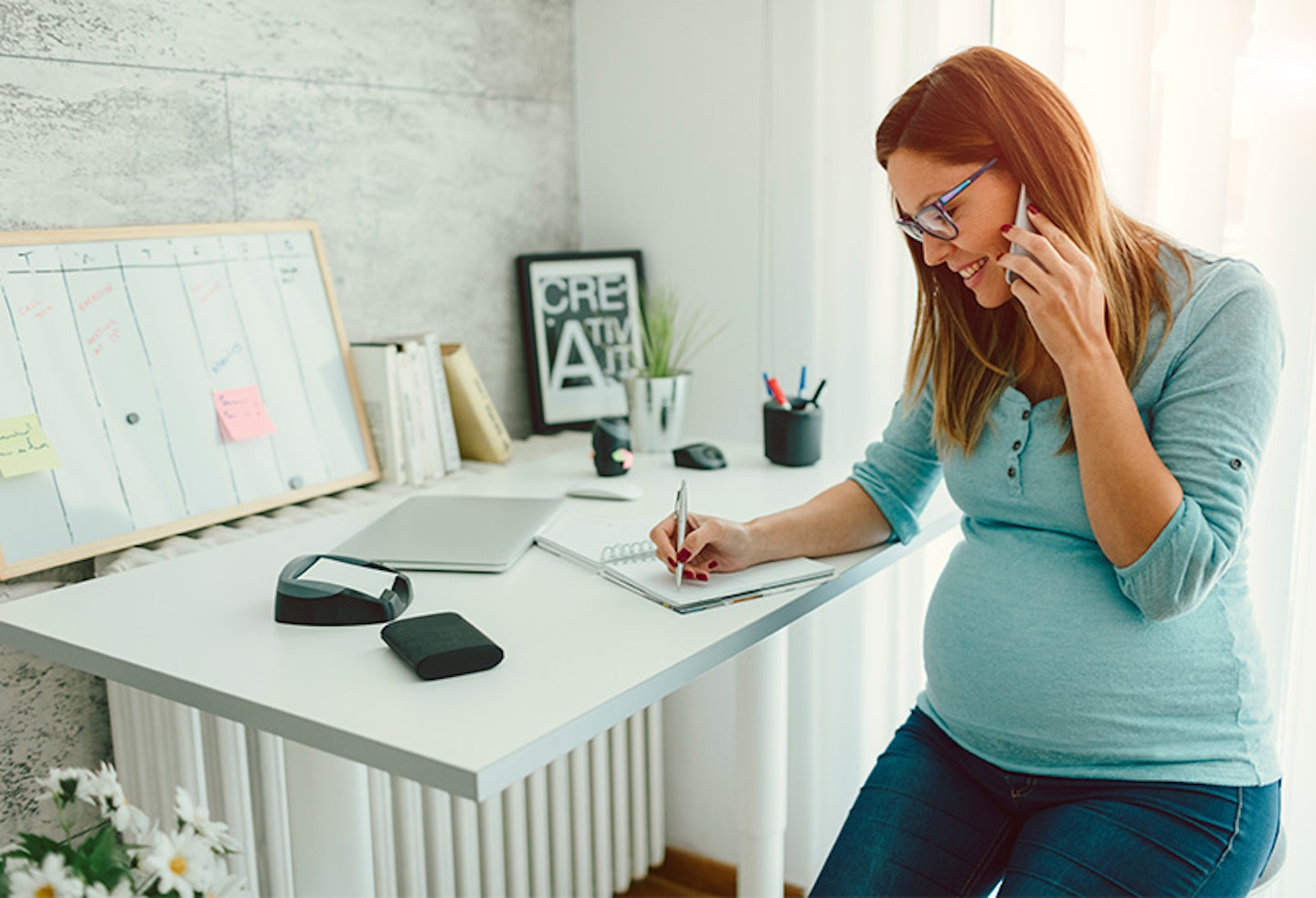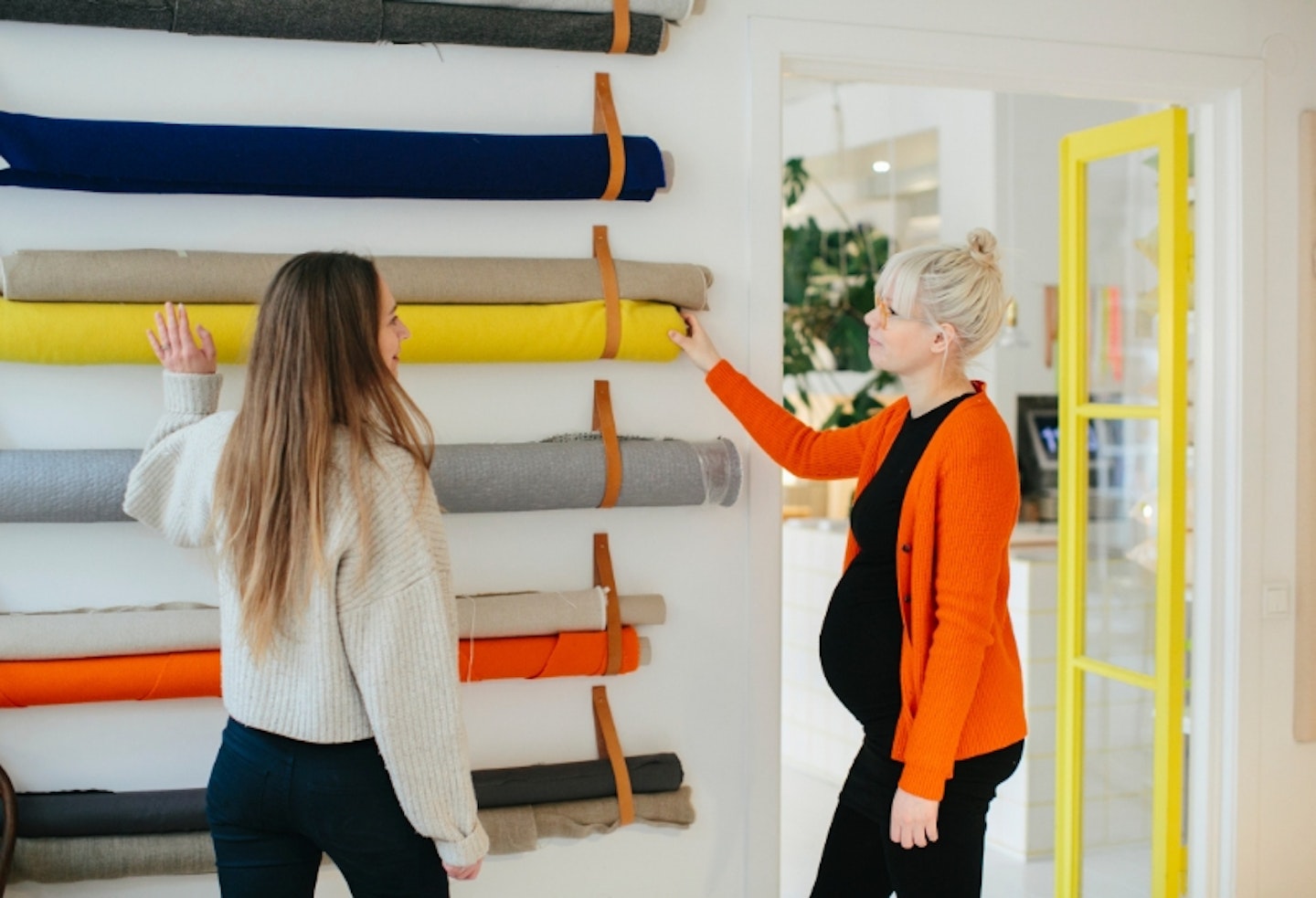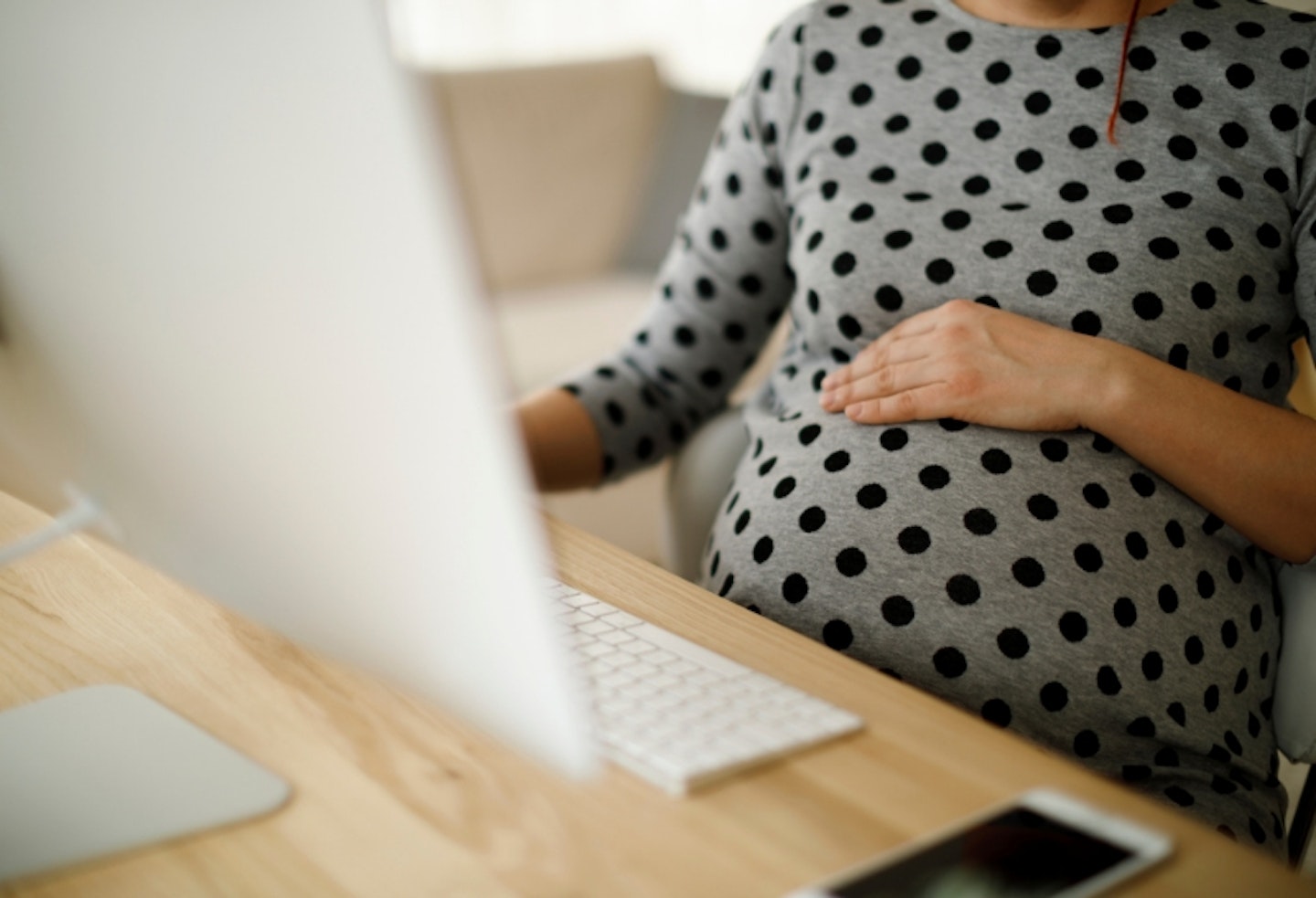If you’re pregnant and working for yourself, you are entitled to support from the government. Read our simple, easy-to-follow guide on maternity pay for self-employed women.
Working for yourself is the dream – no bitchy colleagues, overbearing bosses or meetings about meetings. But there’s a down-side if you’re pregnant, and, yes, it’s financial. As a self-employed woman, you’re not entitled to Statutory Maternity Pay during your Maternity Leave.

But fear not, we’re here to help. There is some monetary support, aka Maternity Allowance (MA) from the Government. OK, you won’t be splurging in Whistles any time soon, but hopefully, you won’t struggle as much as you thought you might. Here, we answer some frequently asked questions about your entitlement.

Maternity allowance advice and FAQs
What is the Maternity Allowance?
It’s basically a social security benefit that you’re entitled to from around the time your baby is due – the expected week of childbirth (EWC). Paid fortnightly, or every four weeks in arrears, you will receive this payment for up to 39 weeks, known as the Maternity Allowance Period.
Do I qualify for MA?
Yes, if you’re self-employed (you must be registered with the HMRC, paying Class 2 National Insurance Contributions or have a Small Earning Exception Certificate) for a minimum of 26 weeks in the 66 weeks to and including the week before you expect to give birth. This is called the Test Period. Your earnings must also average a minimum of £30 per week. The 26 weeks don’t have to be consecutive and can also include part-time work – which you count as full weeks. Bear in mind that you won’t qualify for MA if you’re eligible for getting Statutory Maternity Pay from any employer.
When does the allowance start?
Unless you’ve otherwise specified, the Maternity Allowance Period (MAP) starts on the Sunday of the 11th week before the week you expect to have your baby if you’re not self-employed at this time. However, if you still want to work on or after this time you can specify when you want your MA to start – it can be any day after you’ve stopped work to have your baby, ie your first day of maternity leave. Or you can start it later than that – but be aware that the latest date you can start it is the day after you give birth.
Are there any restrictions on MA?
The earliest you can submit your claim is the start of the 26th week of pregnancy (or 11 weeks prior to your expected due date). Ensure the date you write on the claim form is not earlier than this! And you must claim within three months of the date your Maternity Allowance Period (see above) is due to start or you will lose money. For any queries, contact your JobCentre Plus claim line on 0800 055 6688.
What do I need to do?
You need to fill in form MA1 or phone Jobcentre Plus on 0800 055 6688. You’ll be asked to provide: proof of your income, so original payslips or a Small Earnings Exemption Certificate (if applicable), plus proof of the baby’s due date, for example, a letter from the doctor or midwife or your MATB1 certificate.
How much will my MA be?
From January 2019, it's £145.18 per week for 39 weeks, or 90% of your average weekly earnings if that’s the lesser amount. Your earnings are averaged over any 13 weeks in your test period. The 13 weeks do not have to be in a row so it’s best to choose the weeks you earn the most to help you get more MA. And, great news, you don’t pay tax or NI contributions on Maternity Allowance.
What if my baby is born early?
Claim straight away! Get onto your Jobcentre Plus. Your Test Period will not change.
What if I’ve been self-employed abroad?
MA is based on employment and earnings in the UK. However, if you’ve not worked or earned enough in the UK to get Maternity Allowance, but have also worked in certain countries, they might be able to take that work into account.
Can I work while getting MA?
Yes, but only for 10 days, which are called ‘keeping in touch’ (KIT) days. You can also ask Jobcentre Plus. You must also tell them of any work you do while you’re getting MA.
What happens if I get turned down for MA?
You’ll receive a letter telling you the reason. And Jobcentre Plus will also check to see if you can get Employment and Support Allowance.


6 tips to help you juggle motherhood and your career:
hard working mum - juggling motherhood and your career
 1 of 6
1 of 61) Start as you mean to go on
It’s easy to let that meeting run over, but laying down ground rules now will pay dividends. ‘Being clear about when you are and aren’t available will also help your colleagues, and make everyone’s lives easier,’ says Nicola De Burlet, Head of PR at Kenneth Green Associates.
Feel like you’re getting dirty looks when you walk out the door? Try not to over-think it, and compromise if it’s absolutely necessary. ‘Business is about give-and-take, so if you can’t stay late, tell people that you’ll be around for 30 minutes that evening to take any vital calls,’ says Anna Doble, legal director of media law firm Wiggin.
 2 of 6
2 of 62) Be honest – and realistic
Think of how you’re settling back into work as a percentage – you may be running at 50% for the first month but, over time, this will increase to 70%, then 90%.
‘Percentages turn this stage into a process with a goal, and keep things professional in terms of the language you’re using,’ says Tracey Woodward, commercial director of Urban Retreat. And expect it to take time. ‘Seeing life and work as two separate jobs will always leave you feeling behind in one or both,’ she says. ‘Instead, view them as parts of a whole that you need to balance – sometimes one has to give a little.’
 3 of 6
3 of 63) Feel alive on no sleep
There’s nothing like staying up all night with your baby, to leave you drained at work. Try a pick-me-up.
‘My routine includes a few glasses of water, some stretches and using a body brush to get my circulation going,’ says Tracey. ‘If you’re flagging during the day, run your wrists under the cold tap for a boost.’
 4 of 6
4 of 64) Make space for creativity
You’re trying to come up with genius ideas for a client, but all you can think about is whether you remembered your toddler’s hat for nursery. Time to find some creative headspace.
‘A half-hour swim at lunch to think outside a work environment can be more productive than two hours at your desk trying to have that light-bulb moment,’ says Clare Hopkins, co-founder of beauty brand Balance Me. ‘I also bounce ideas off other people, even those in different industries, because they can show you how to approach something in a fresh way.’ Keep a notebook in your bag or an ‘ideas’ note on your phone, so you can write good ones down straight away.
 5 of 6
5 of 65) Take time out
It’s natural to have an OMG moment when you’re overwhelmed with work/home/life stress, so step outside or into the corridor to calm yourself down.
‘Picture the worst case scenario, then put it into perspective,’ says Tracey. Whenever you doubt your decision to return to work, think over the benefits for your child. ‘He’s socialising with other children at nursery or having fun with whoever he’s with, then he gets the best of you when you get home,’ says Clare.
 6 of 6
6 of 66) Get organised
You may have had a to-do list before, but now’s the time to get super-organised – it’ll help prevent anxiety in the long run.
‘Set yourself a household task to get done in your lunch break each day – paying a bill or booking a GP appointment,’ says Anna. ‘Have separate lists for work and home. I have a folder for everything, from weekly plans to party invitations. It sounds geeky, but knowing everything’s in one place puts you back in control.’
Want to know more about Maternity Rights? Let us know on Facebook or Twitter!
Make sure you're following Mother & Baby on Instagram for relatable memes, inspiring stories and parenting hacks!
Have approx 60 seconds to spare? Why not join thousands of mums-to-be and start your very own Amazon baby wish list! They're absolutely free to create and perfect to send to the friends, aunties and your mum to make sure you're getting the baby products you really need...Click here!
